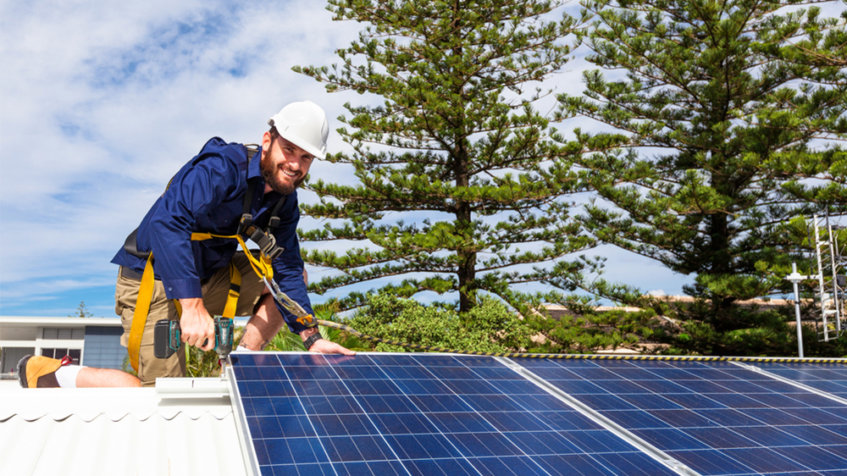In the modern age, sometimes it feels as though it would be impossible to leave everything behind and live a more self-fulfilling, and self-sufficient, lifestyle. Smartphones, cars, and constant food, water, and energy supplies have all contributed towards an existence that is reliant upon these things every day and night; without them we would probably struggle to live our lives in a way that felt comfortable.
However, there are ways of regaining our independence from the modern world around us without compromising our quality of life – going off-grid is one of them. By replacing energy and water supplies from the main grid for renewable alternatives, this way of living offers a sustainable alternative to a lifestyle where everything we need is available to use 24/7. Together with Flogas, specialists in LPG canisters, we take you through exactly how living off-grid can be easier than you think.
Finding alternative power
After you’ve removed yourself from the grid, you’ll need to find another energy supply to power your home. Solar energy is a reliable form of power that can produce around 3,400kWh of free electricity every year.
If you have small children, then a 3kW to 4kW solar panel system will produce the required amount of energy for a family home, whereas a 2kW to 3kW solar panel will produce enough energy for smaller homes with less people living in them. A 3kW overall solar system will cost around £5,000 – £6,000 and will be a sound investment based on the amount of free electricity you will procure during its lifetime.
You should also look to install a backup power supply in the form of a generator or a gas cylinder; this can be utilised on cloudy days or if your solar panels stop working for any reason. Or alternatively, domestic wind turbines can also be installed that produce 5kW to 6kW of energy; you will also be paid for any energy that you don’t use which is sent back to the grid.
Other considerations
When you’re relying on energy supplies that are external to the grid, then it’s important to only use the energy that you need.
To keep energy costs low and to live within your own budget, LED bulbs should be used to replace incandescent bulbs – helping to reduce electricity costs by 75%; aim to get rid of any electrical appliances that you don’t need, and make sure that all electrical appliances are turned off at the mains once they have been used.
Drainage
When living off-grid, you will need to source your own water supply if you’re not already near a clean, natural source of water. A well can cost anything between £10,000 – 20,000, and this is dependent upon how deep the well is dug, and whether the well will be used as a source of drinking water or for other domestic purposes.
A septic tank will also need to be installed in the absence of a sewage system, and this sewage tank will need to be emptied periodically by a vacuum truck so that it is disposed of safely. As well as this, a greywater system should also be installed; by treating water used in dishwashing, sinks, showers and baths, this water can be used again. This also benefits the lifespan of your well, as you can reuse water that has already been cleaned and brought to the surface.
Making lifestyle changes
Although there are practical changes that you can make to your life, such as finding an alternative energy source, making changes to your lifestyle are also important considerations.
Reducing waste
All the food, energy and water that you use should be monitored and maintained at a consistent level; if you begin to slip, then your reliance on these things may reach unsustainable levels, which may impact your ability to live off-grid. There are many ways to keep on top of waste, and these include:
· Keeping showers short.
· Only using artificial lighting when it is completely dark.
· Turning off lights after exiting a room.
· Using food leftovers for compost to create a rich soil for growing more fruit and vegetables.
· Attend workshops that allow you to learn more about how to repair any damages to the home, or how to cultivate land for agricultural practices.
· Adopt techniques such as hunting and fishing so as to catch fresh food, helping to reduce your reliance upon supermarkets that you would usually have to drive to.
There are other ways to live off grid, and you will make many mistakes along the way, but becoming self-sufficient may just be the key to your unlocked potential and happiness.
































